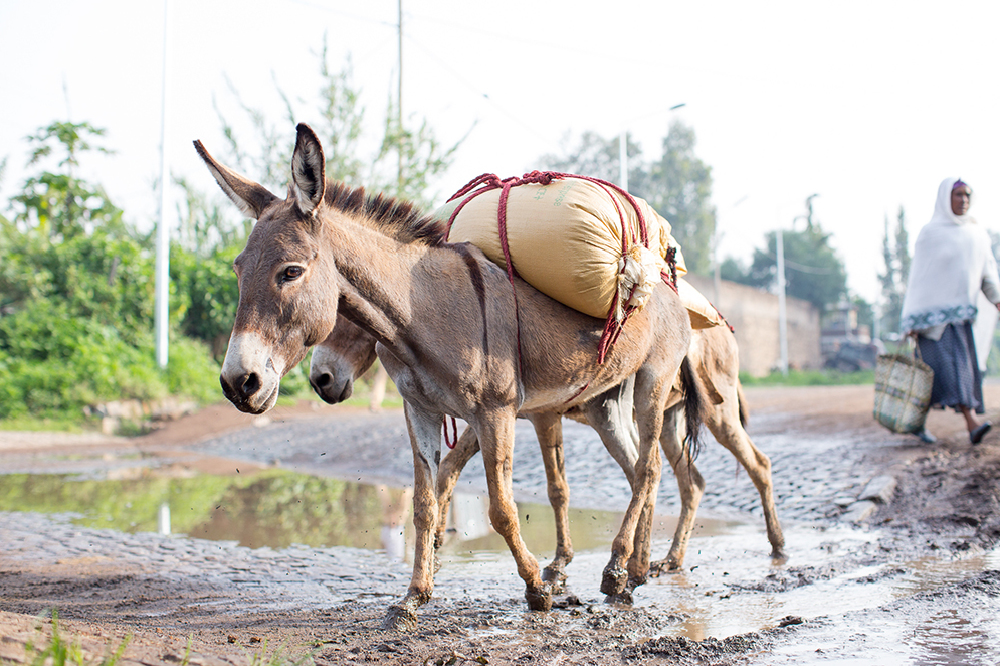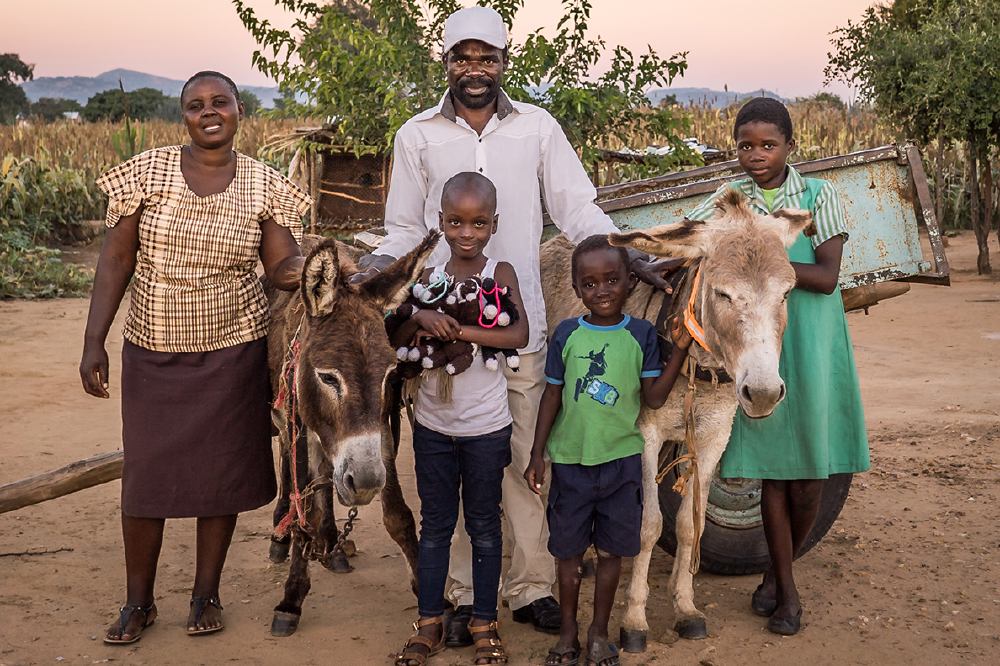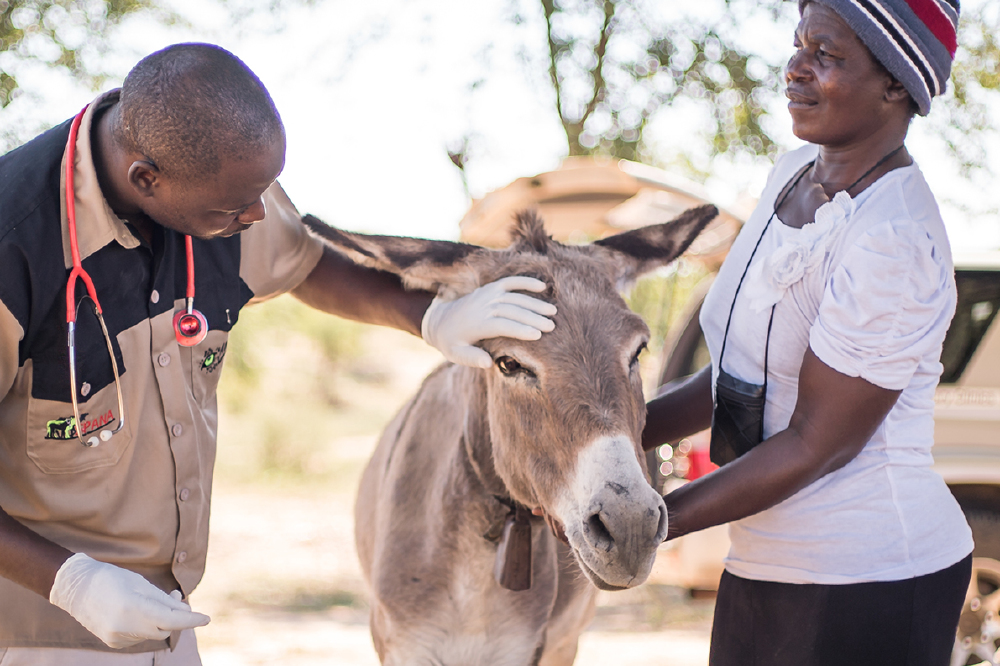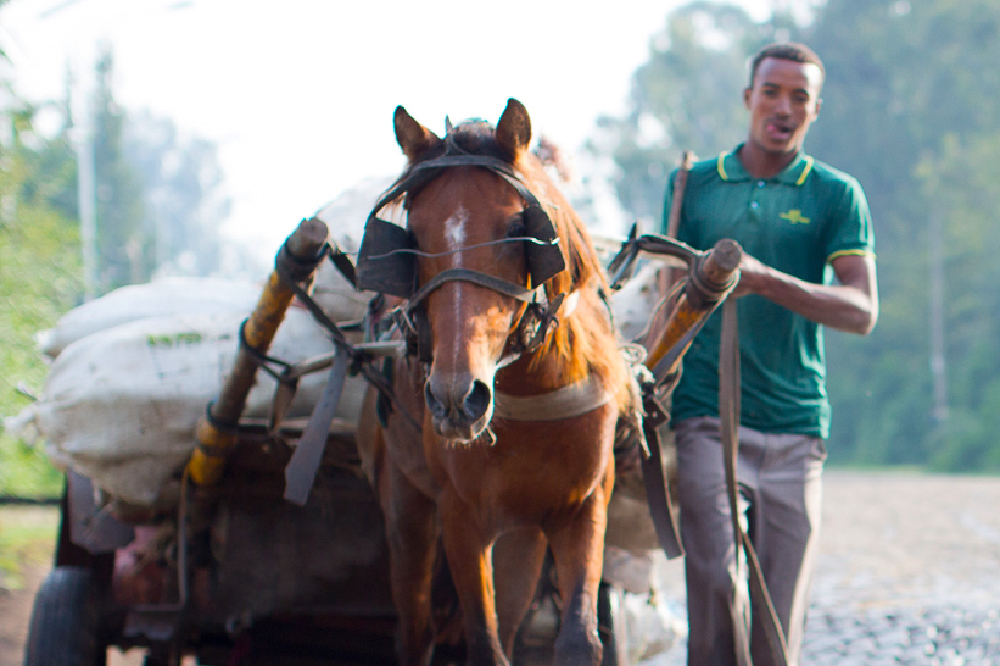They play an essential role
Around the world, working animals, such as horses, donkeys, mules, camels and elephants, play a vital role. They transport goods to markets, children to schools and water and supplies to remote communities.

They help to support families
The power of animals
It’s easy to take for granted the technology we have available to us, but many people around the world still rely on the ‘horsepower’ of working animals to do the job of trucks, tractors and taxis. This doesn’t just apply to a small minority: 50 per cent of the world’s population depend on animals as their main source of power.
Relied upon to survive
A working animal is often the only means some people have of earning money to provide for their family and feed their animals. In fact, they support the livelihoods of one billion of the poorest people worldwide.

Supporting the family
One working animal can have a big impact, supporting an extended family of up to 30 people. So the loss of an animal can have a devastating effect.
They are a forgotten workforce
Despite playing such an important role in countries around the world, research by SPANA shows that a third of people in the UK don’t know what a working animal is. For some who travel to the less developed parts of the world, it can come as a shock to discover just how reliant so many communities still are on working animals.
Millions of animals need our help
Although many people have never heard of a working animal before, there are thought to be over 200 million animals – such as horses, donkeys, mules, camels and elephants – working around the world.
No time to rest
Working animals don’t have holidays or retirement to look forward to. Because they are so important to the impoverished families that rely on them, they don’t get the luxury of time off and – like their owners – have to work until their final days.

No veterinary treatment available
For working animals in developing countries, there is often no veterinary treatment available, or their owners simply can’t afford to pay for it. That’s where SPANA comes in, offering free veterinary care to these hardworking animals. Last year, the charity provided over 336,000 vet treatments to working animals across the nine core countries it operates in.
Education is key
Working animal owners care deeply about the welfare of their animals, but they often lack the appropriate animal welfare knowledge. That’s why SPANA works with owners to help them understand the impact of overloading, overworking, poor nutrition and other avoidable problems. The charity also runs an extensive education programme, to teach schoolchildren – the animal owners of tomorrow – the importance of being kind to animals.

Surviving a crisis
Drought, conflict, natural disaster and extreme weather significantly affect the communities and animals who are least able to endure such challenges. Healthy animals give families hope of an independent and sustainable future. SPANA helps to protect these animals, providing a lifeline for communities in desperate need.
To find out how you can help working animals, visit www.spana.org or follow SPANA on Facebook, Twitter and Instagram.
Tagged in Animals

